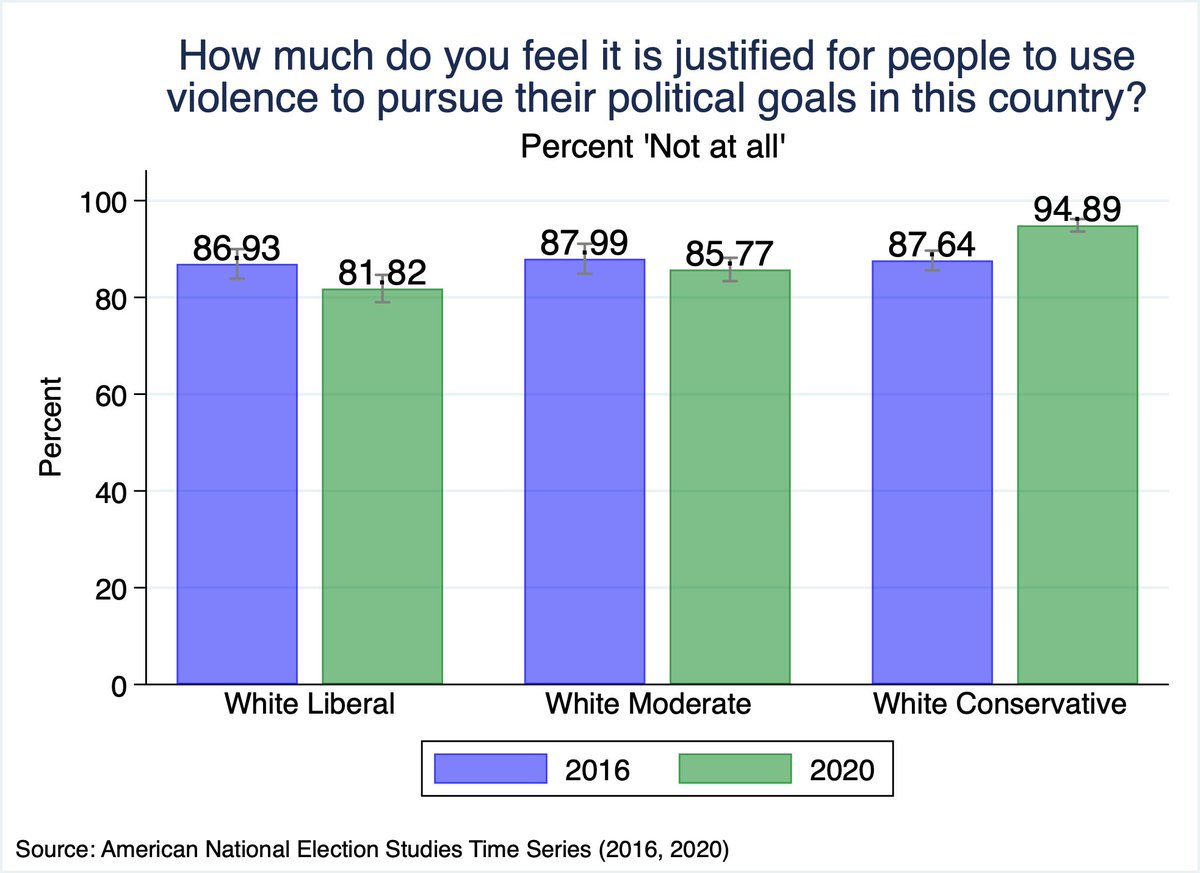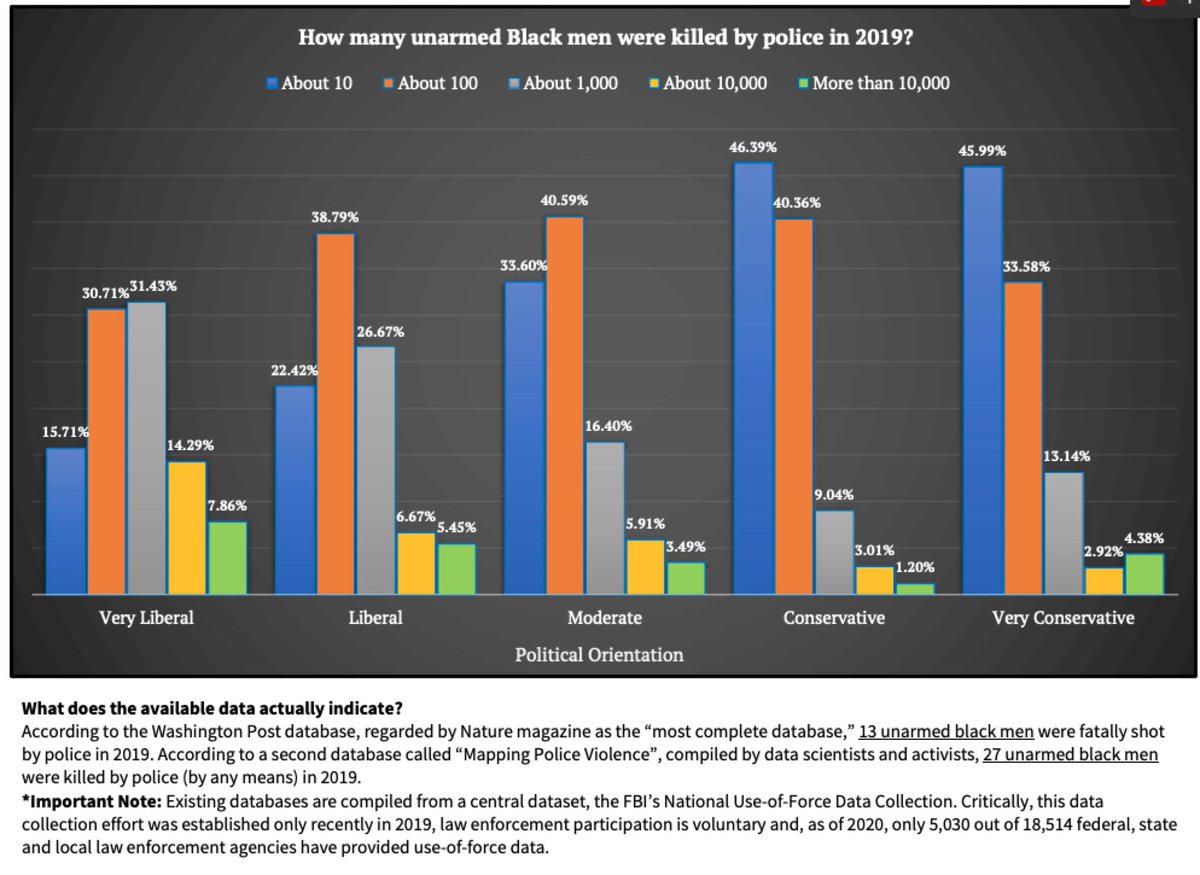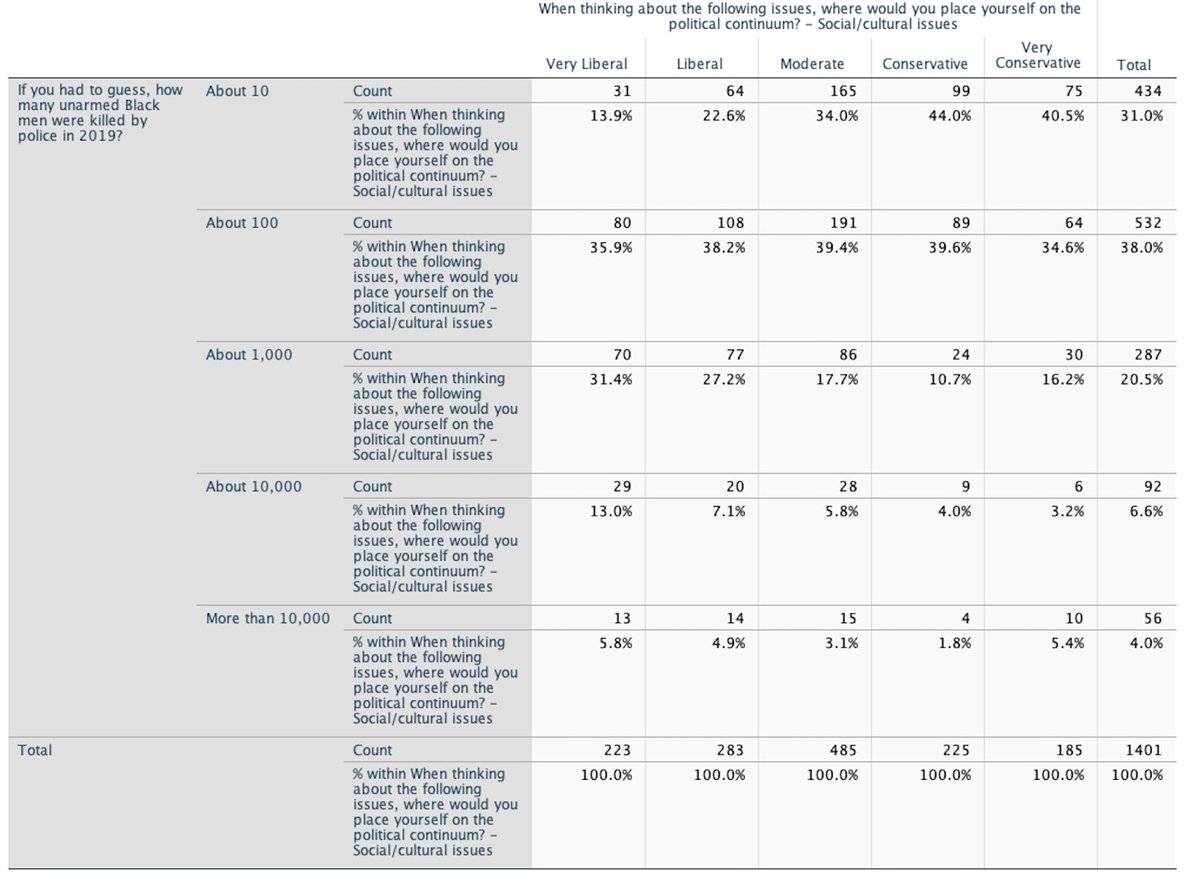
1/n Between 2016-2020, white liberals became slightly but significantly less likely to say that political violence is 'not at all' justified, while white conservatives became significantly more likely to give this response. 

4/n Credits to @LJZigerell's latest post
https://twitter.com/LJZigerell/status/1369397566174035979?s=20for piquing my curiosity about these data.
6/n Correction:
https://twitter.com/ZachG932/status/1369867420307972098?s=20
• • •
Missing some Tweet in this thread? You can try to
force a refresh















